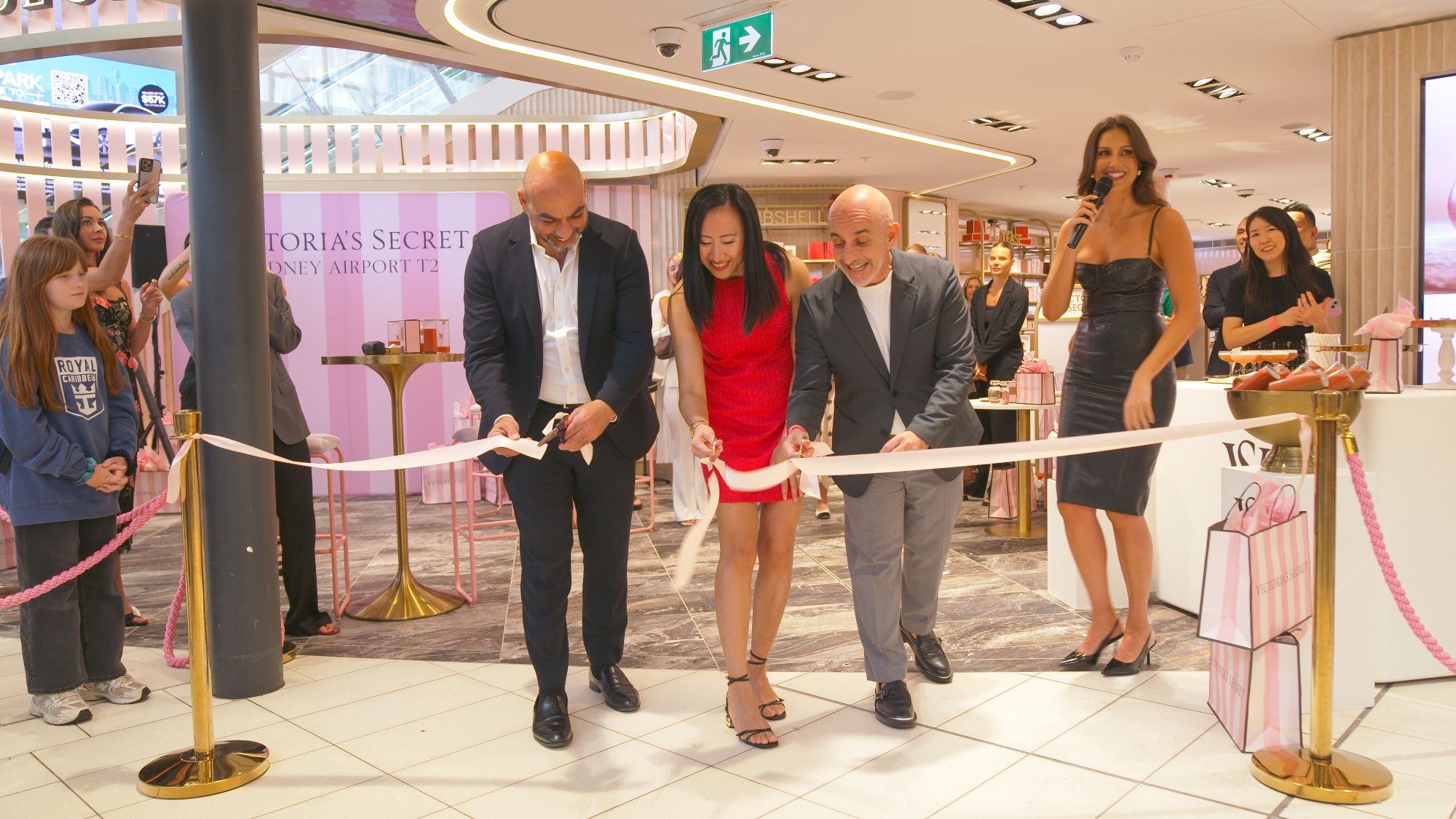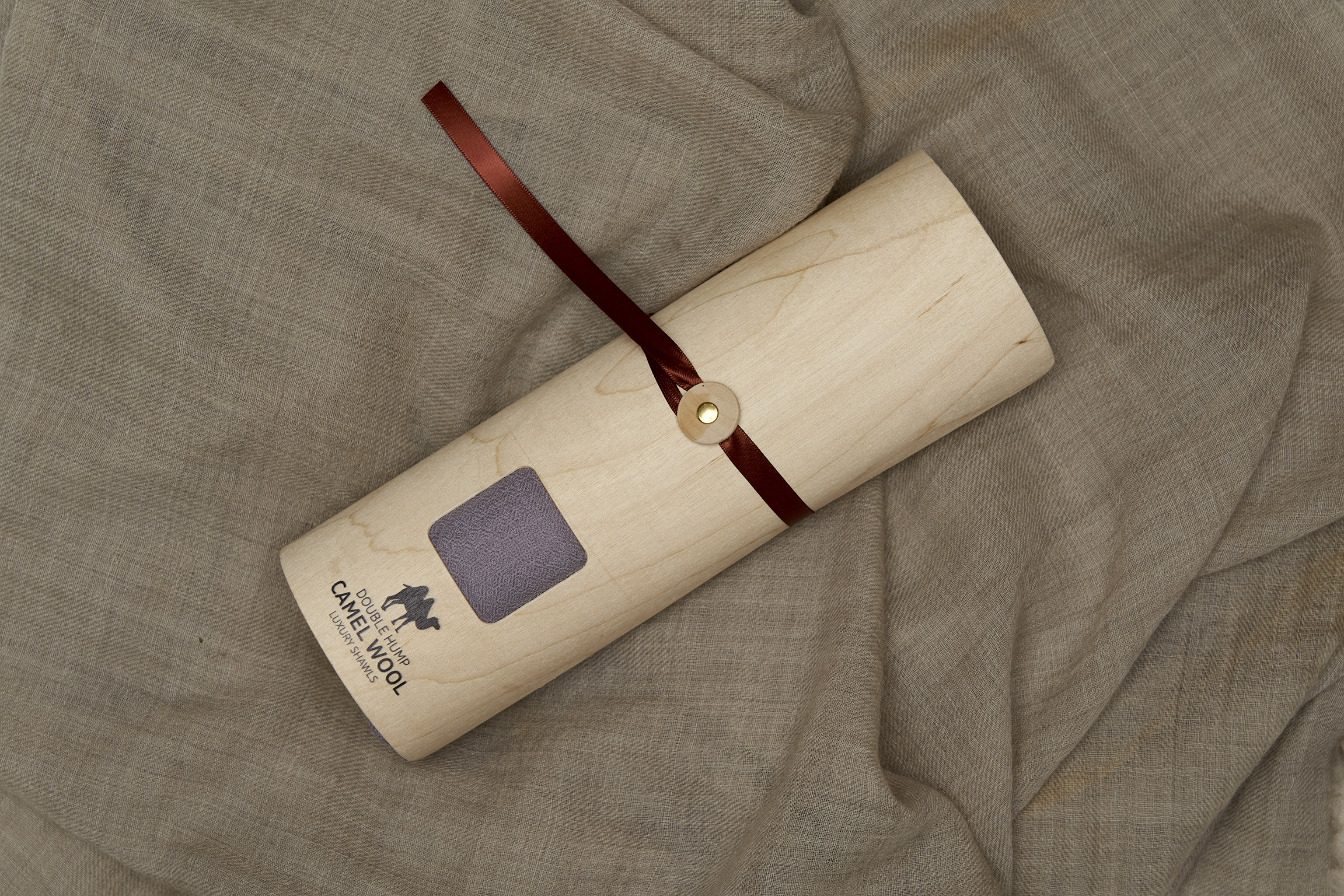June 8, 2023
On location: ATU Duty Free's Ahmet Kötehne talks innovation and expansion
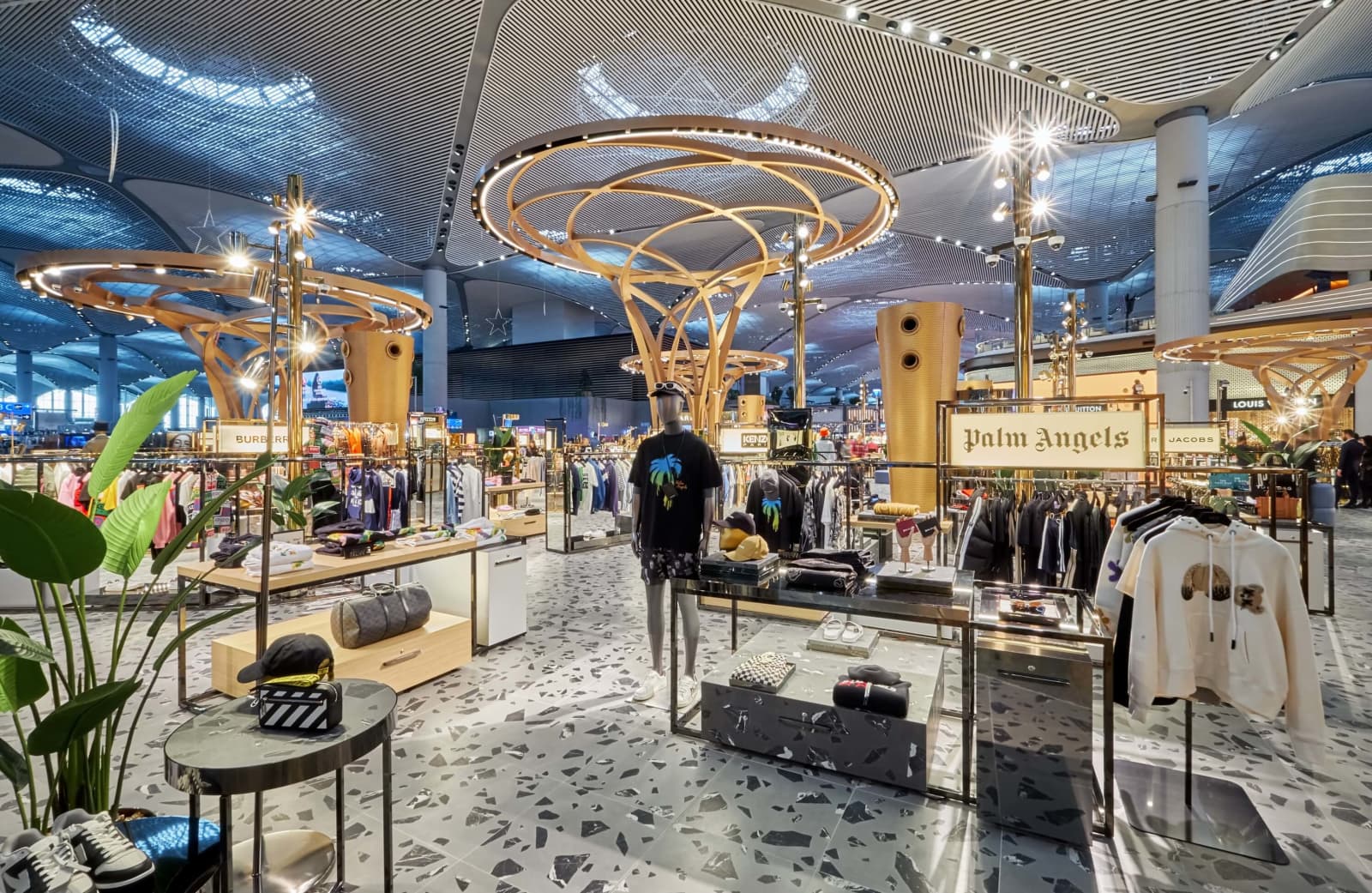
The newest Luxury Square extension at Istanbul Airport added close to an additional 50% in floorspace. Trendy streetwear and sneakers now take centre stage
ATU Duty Free is in the enviable position of having originated as a joint venture between one of the world’s greatest airport operators and one of the world’s greatest travel retail operators — TAV Airports/ Aeroports de Paris and UNIFREE Duty Free/Gebr. Heinemann, respectively. Since its formation in 1999, ATU has grown exponentially to become one of the major players in the airport retail market, operating in 20 airports throughout six countries. Locations include Istanbul, Ankara, Izmir, Milas-Bodrum, Gazipaşa-Alanya in Turkey, and others in Latvia, North Macedonia, Oman, Georgia and Tunisia, with shops in multiple airports in some countries such as Georgia, Macedonia and Tunisia.
Basic model
“We benefit from our partners having airports and from Heinemann supplying us with duty free products,” says Ahmet Kötehne, Chief Strategy Officer of ATU Duty Free. “As part of our growth strategy while expanding our service network, we also care about being in the regions where our airport partners are located. With the synergy arising from our cooperation with our partners, we continue to take part in new markets in travel retail business in an even stronger way. We also benefit from our partners' experience in pricing and marketing to increase our efficiency.”
Istanbul Airport, which officially opened in 2019 after a soft launch in 2018, was built to replace Ataturk Airport. One of the five busiest in Europe, Ataturk Airport was unable to expand because of its physical location, though its PAX was growing. At the former airport, ATU operated the duty free stores. At Istanbul, the core duty free store is operated by Unifree, ATU’s parent company. ATU is a sub-contractor, operating most of the boutique stores and the Old Bazaar shops.
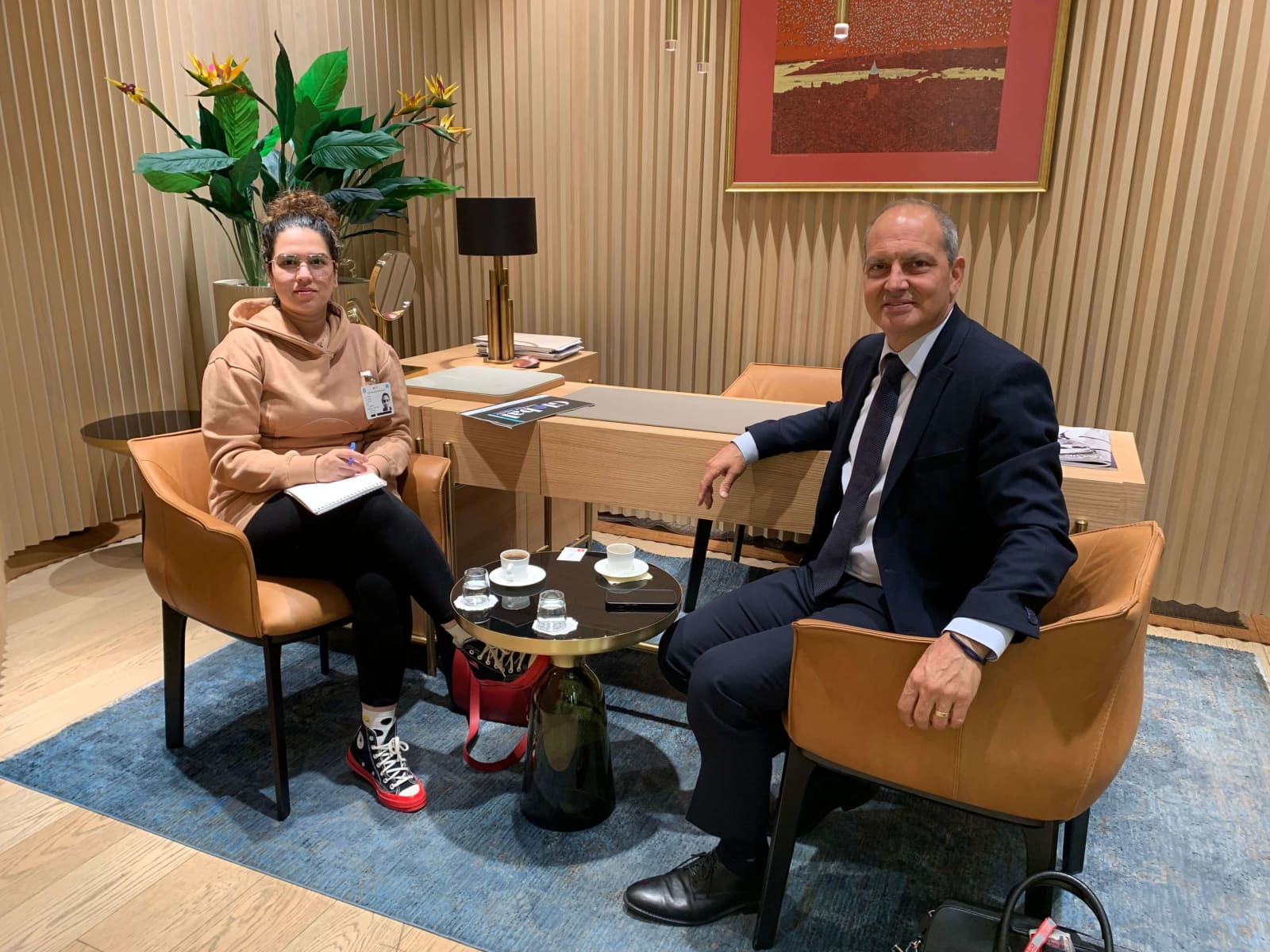
Global Travel Retail Magazine's Editor-in-Chief Hibah Noor during a recent visit with Ahmet Kötehne, Chief Strategy Officer of ATU Duty Free
Growth and renovations
In 2022, while global passenger traffic began to increase but was still nowhere near 2019 numbers, the airport served 64 million PAX, the majority of those in the second half of the year, with 85% growth rate in H2 compared to H1.
Though the airport has not been open for very long, the future is on its doorstep and both the airport and its retail will be ready. “There are always some renovations going on,” says Kötehne. “I think when the airport reaches at max. capacity, there will probably be plans to build a new terminal. We started with two runways and now we have three runways.”
Currently, the expansion is inward, creating more retail. “Some office space that is being vacated right now is planned to be turned into commercial space,” says Kötehne.
The company is currently in the process of signing tenders and contracts in the vicinity of its main region, which skirts East and West. Current locations ranging from Oman in the south to Latvia in the north, Macedonia in the west to Georgia in the east, though we may see some expansion into further territories in coming months.
Recent renovations and rebuilds of note include the store in Skopje, where ATU took advantage of the downtime caused by COVID to completely rebuild and expand it. “It needed to be renewed,” says Kötehne, “So we changed the location of the store and built a brand new one in December 2022.”
Global sales
According to Kötehne, like for like recovery overall between H1 of 2022 and 2019 reached almost 90%. These figures exclude Istanbul, which opened partway through 2019; Galataport, which is a new operation; and Kutaisi, which its operation was rebuilt in 2022 after winning the tender again.
“In H2, more of our operations had fully reached 2019 figures or surpassed them,” he says. “Overall our sales have been 9% higher than 2019. Turkey, North Macedonia and Oman operations were earlier performers than others. In 2023 we are already exceeding pandemic figures and we're ahead by 9% globally.”
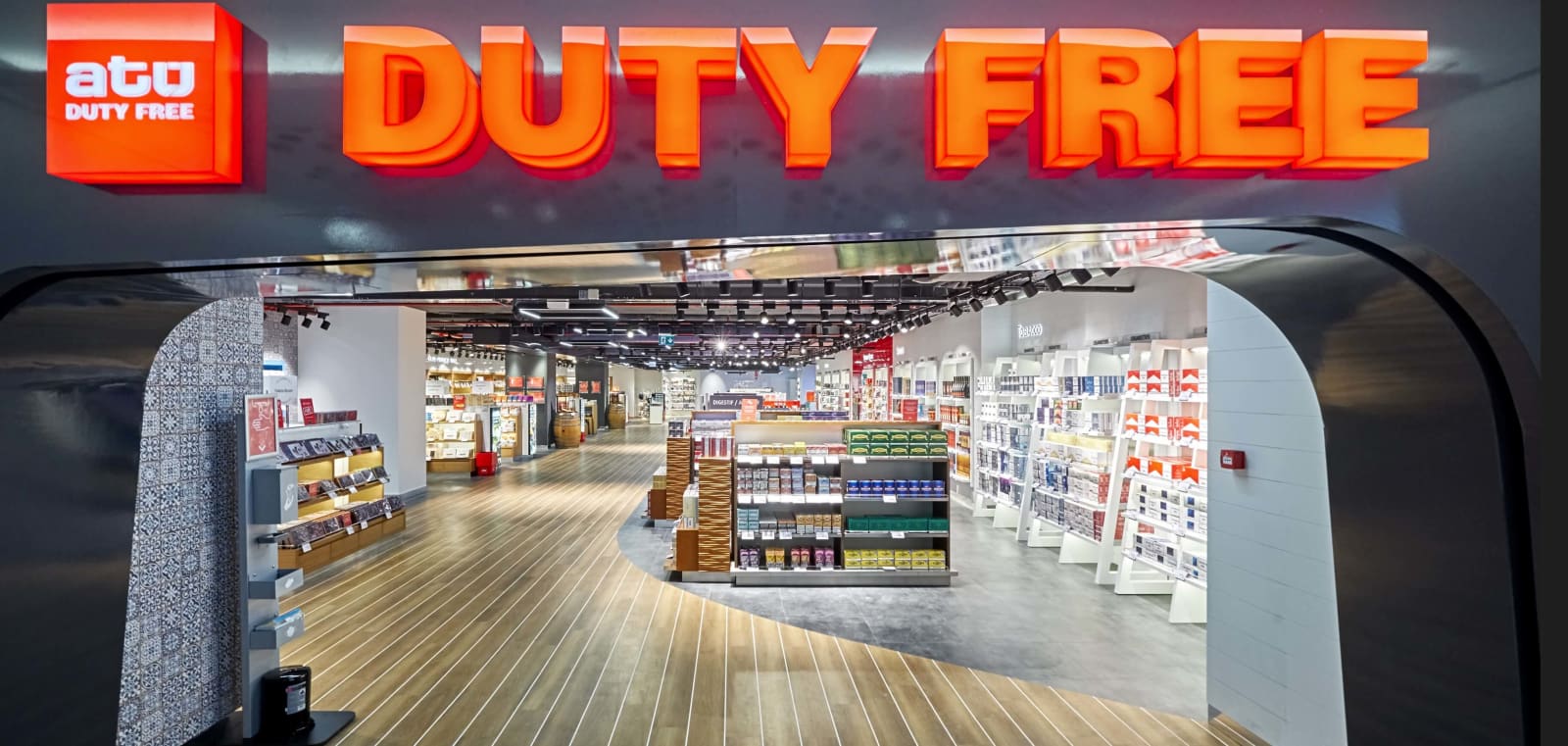
Expanding into cruise ports, ATU opened a 670-square-meter store in Galataport, Istanbul in October 2021, presenting cruise customers with a covetable assortment of duty free and Old Bazaar offerings
Cruise port
During the pandemic, ATU opened a new seaport shopping area in Galataport, Istanbul. This cruise port now offers a special concept of shops, restaurants and cafés, covering 1.2 km of waterfront along the Bosphorus Strait.
“In the 29,000-square-meter terminal built underground, we offer our customers a combination of classic duty free and our Old Bazaar local concept. We opened our 670-square-meter store in Galataport Istanbul in September 2021,” says Kötehne.
Sales at Istanbul Airport
As Istanbul Airport opened in 2019, its PAX would be affected soon after. “We opened right before the pandemic, so we started with low numbers. Fortunately, Turkish Airlines didn't really stop during the pandemic, which helped us stay alive here. Turkish Airlines' strategy was very important to us,” Kötehne says, adding that these fortunes did not extend to the company’s entire portfolio, as other airports where ATU operates were closed for many months. And now, other trends are further helping the retailer’s sales to soar.
“Since a lot of people couldn't travel for so long, we're now experiencing revenge buying. People are buying excess amounts just because they can,” says Kötehne. “We're benefitting from that. Additionally, Turkish Airlines has grown significantly in terms of destinations and flights, and that's helping us a lot. The war in Ukraine and Russia is a bad situation, but we continue to have Russians flying through Turkey, and some have moved here.”
“The luxury trend is definitely growing. That's why we're increasing the boutique areas. We want to bring more brands here.”
Kötehne says category sales are migrating back to the normal splits of liquor, tobacco, cosmetics and perfumes, with an added market for skincare. “There's huge medical tourism in Turkey. We market to them with our skincare and P&C, and this is reflecting in our sales of that category.”
Luxury Square Istanbul
As Kötehne mentions, the luxury trend is growing, and the company’s Luxury Square at Istanbul Airport has recently been expanded for the second time. “The first time we expanded 30%; the second time is probably 50%,’ he says. The recent expansion takes floorspace to 1,263 square meters.
“The sales reflect this expansion,” he says. “We've increased the assortment, we've added shoes, bags, and more accessories. Before we had more textiles and fashion accessories. Now we offer sneakers — this is very trendy.”
The space, which was designed in partnership with brand architecture agency Plajer + Franz, includes a luxury streetwear showcase alongside a dedicated area for sneakers at the centre, which itself is located at the centre of the airport. Luxury Square is designed to be easily accessible to all passengers and to act as a centre of attention, where brands can showcase their newest items. Luxury also has a particular appeal for the Gen Z traveler.
Travelers from certain countries are more inclined to spend larger amounts in duty free shops, and Kötehne says specific ATU locations are currently benefiting from these high-spending profiles, including Easterners in Turkey (both in luxury boutiques in Istanbul and core duty free in Bodrum-Milas) and Israelis in Georgia.
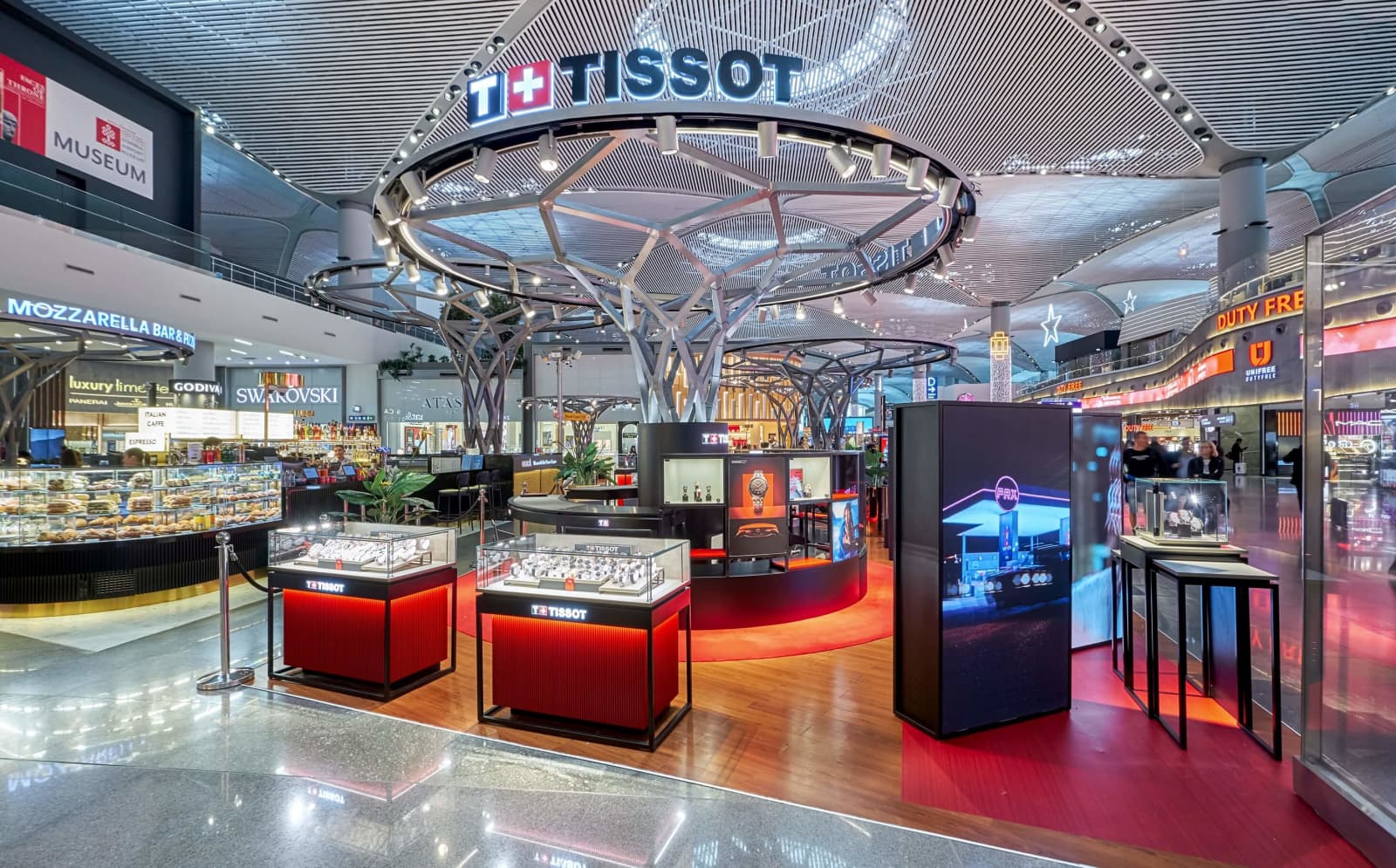
The retailer offers eye-catching locations for pop-ups such as this one, where Tissot is located in close proximity to Luxury Square
Luxury brands
Kötehne is proud of ATU’s anchor brands that surround its buzzing Luxury Square. These include Cartier, Hermès, Bvlgari and Luxury Timepieces. Hermès, Bvlgari and Cartier are the top selling brands in luxury. Other brands in Luxury Square include Burberry, Kenzo, Givenchy, Loewe, Stella McCartney, Alexander McQueen, Chloé, Marc Jacobs, Off-White and Palm Angels, with new additions including Lanvin, Autry, MM6, Acne, On Running, Axel Argiato, Tod’s, Versace, 04651/A Trip in a Bag, Thom Browne, Casablanca, Zegna and Vetements.
“When we first opened, we had some doubts about the stock level, but we didn't want to overstock in the beginning — both us and the brands,” says Kötehne. “But then at a certain point, customers were coming and asking for specific products and we didn't have them. We were a missed opportunity. We could see this, and the brands realized it as well.” Brands are now bringing their top assortment, he says, and if a certain boutique should leave the airport, huge brands are waiting to jump in. “Contracts are for two or more years,” he says. “Brands are ready to commit. Sometimes we bring in new brands. Currently, Tissot has a pop-up very close to the Luxury Square.”
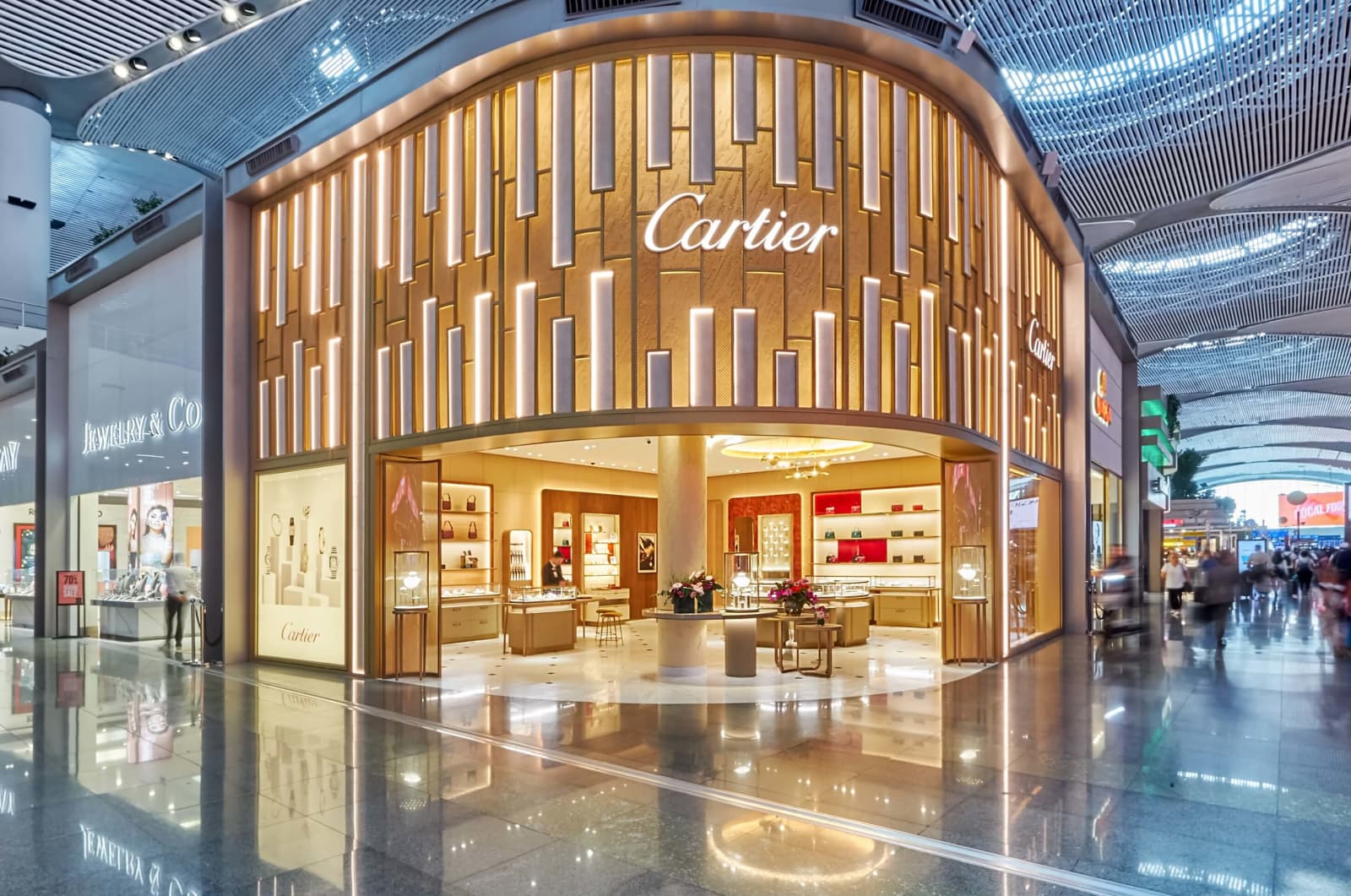
ATU’s Luxury Square is at the centre of the airport; as there are no separate terminals, all travelers passing through the airport are drawn to the area. For anchor brands like Cartier, this allows for unprecedented levels of attention to its new items
Old Bazaar
Inspired by the Grand Bazaar in Istanbul, which is world’s one of the oldest covered shopping malls, ATU’s Old Bazaar (pictured below) aims to bring a sense of this magical place to travelers who are passing through Istanbul Airport. Its offer is differentiated from classic core duty free as it focuses only on Turkish specialties such as Turkish delight, baklava, dried fruits & nuts, Turkish tea & coffee, home textiles, Turkish carpets, jewelry, leather goods, rose water, souvenirs and other traditional Turkish items. It has proven to be a successful concept in Atatürk and Istanbul Airports, and was also implemented in İzmir and Ankara Airports.
“The Old Bazaar store has a unique concept,” says Kötehne. “We have two Old Bazaar stores at Istanbul Airport, and one each in Izmir and Ankara. Each is over 1,500 square meters. The assortment is wide. This mimics the Grand Bazaar, which was created before the Ottoman empire.”
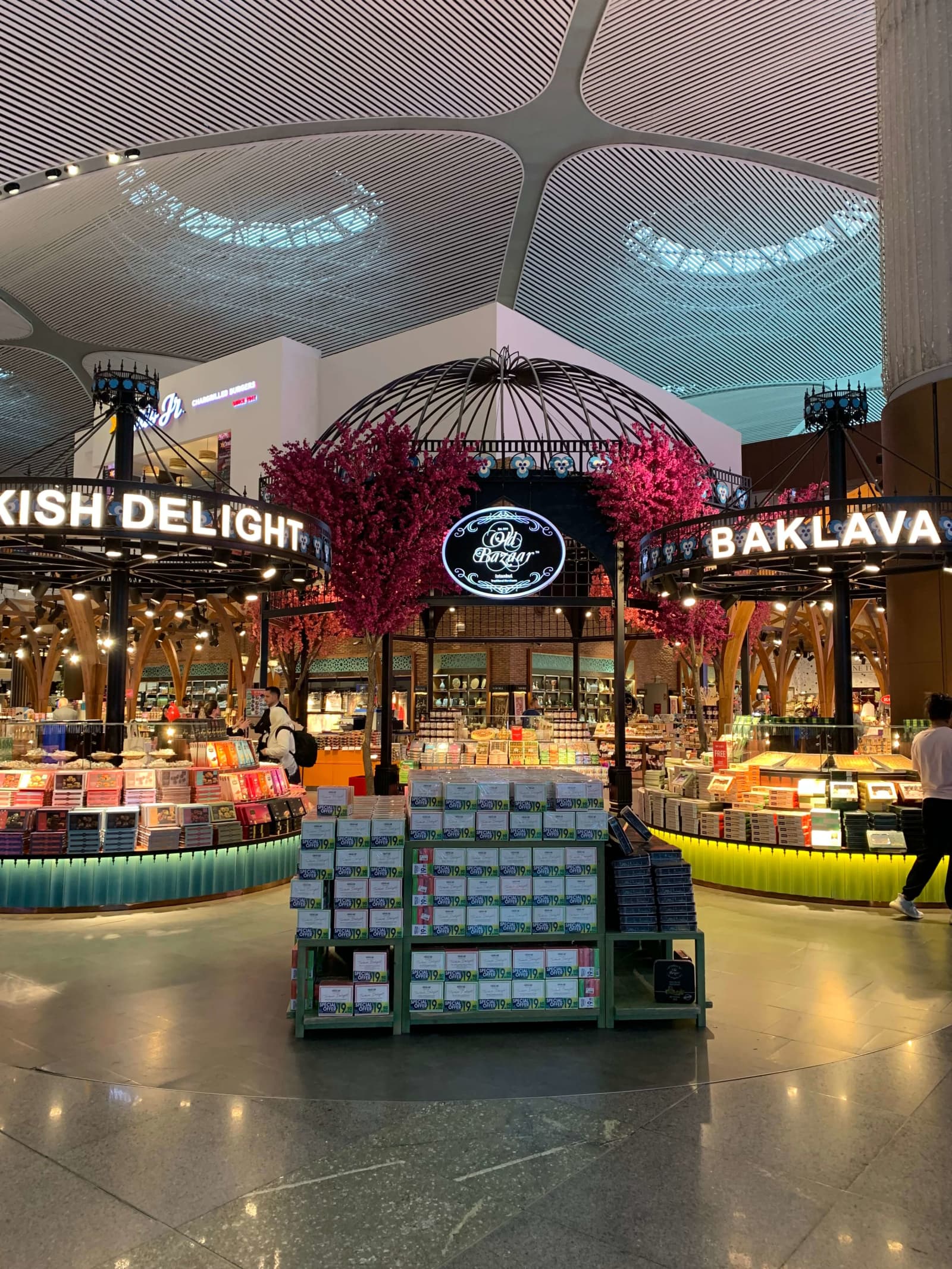
Advantages and challenges
Kötehne states that a big advantage at Istanbul Airport is having one huge terminal under one roof rather than having terminals all operating separately. “It's more efficient. Turkish Airlines flies to more destinations than any other airline. Istanbul is a great destination and I think in the long run it's going to pass Dubai and Qatar. We will become the number one or two airport in the world. We're in the top 10 anyway, and we're growing at a higher rate than the others in the top ten group. Turkey is in a good position to connect the east and the west and north and the south geographically. That's the good part.”
And the bad part?
“Supply chain issues continue to affect us. In global terms, production is not at the level it was before the pandemic,” he says. “In addition, the war between Russia and Ukraine caused energy restrictions, and low raw material production affected our order fulfillment rates negatively. It is difficult to evaluate the results of the global recession and high ticket prices on sales. Diversity of travelers from different income groups may be affected by high ticket prices, but this seems to be more of a delay on heterogeneity of customer profiles. On the other hand, due to inflation, operational costs — primarily wages — are increasing. A healthy balance between the increase in sales and costs is necessary to maintain a profitable company, by ensuring satisfaction of customers and landlords, and the welfare of employees and shareholders.”
Production is one part of the supply chain issues, and Kötehne says the production capacity decreased severely with many brands, especially alcohol and tobacco. But additionally, logistics companies had difficulty traveling at all. “Fortunately, 85% of that has now been solved,” he says. “We still have problems on the tobacco side, especially with cigars. The Cubans and Dominicans — that region is running short on production. There is a huge demand for cigars but we're not getting everything that we want. Once we get it it's gone right away. Those are the main two challenges.”
After the pandemic, he says, another challenge is staffing. Finding employees has become much harder. “Most people now work from home, which has become the norm,” he says. “We have several departments at the company where employees continued to stay home. New employees ask how many days they can work from home in a hybrid work environment. In Turkey we have cheaper labour than the rest of the world, and since they can work from home they can work online — especially on the IT side or logistics side. Turkey has a lot of qualified people who can work as cheap labour for companies in other countries, so we have more of a challenge. Salaries increase every month. This was difficult to adjust, because we didn't know where the pricing was going.”
Recovery after the earthquake
In February, a devastating earthquake struck the south of Turkey and northern Syria, killing tens of thousands.
“Since the earthquake, we have taken a lot of disaster recovery steps,” he says. “We adjusted many of our procedures according to issues that may arise from an earthquake. We moved a lot of our documentation to the cloud. We have a disaster recovery plan for our IT servers. We have duplicated our servers in case one should falter. We can access information from other locations. We are also reserving some cash budget for these purposes.”



